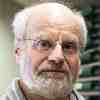Communications of the ACM
Refine your search:
From BLOG@CACM
First-Year Research Sources
Identifying publications for first-year research requires some digging and some non-standard choices.
From BLOG@CACM
The Cross-Sectorial Collaborative Shared Value Strategy
A new strategy – cross-sectorial collaborative shared value – aims to increase the impact of the organization’s social investments.
From BLOG@CACM
Project Managers Shouldn't Trust Their Programmers. Do This Instead
Don't simply trust and pay your programmers. Why? Because you may end up losing. Instead, you need to validate and review the work performed. Doing so set you up...
From BLOG@CACM
What Liberal Arts and Sciences Students Need to Know About Computing
Defining goals for computing education beyone CS and Informatics offerings.
From BLOG@CACM
Computers for Learning: Charisma that Fails to Disrupt?
Two books examine why large-scale learning technology often doesn’t achieve expectations. Technology can improve learning at scale, but charismatic stories about...
From BLOG@CACM
Teaching Critical Computing is a Grand Challenge for the Whole CS Curriculum
We need to prepare our students' to have a critical perspective on computing, and that requires changing the curriculum, not just a course.
From BLOG@CACM
Konrad Zuse's Guestbook: a Treasure Trove
Computer scientist Konrad Zuse created the world's first programmable computer, the functional program-controlled Turing-complete Z3.
From BLOG@CACM
From Solar Sunrise to SolarWinds
The hack of critical departments of the U.S. government—and of many leading corporations—should come as no surprise.
From BLOG@CACM
Time to Resurrect PSP?
The Personal Software Process encourages programmer discipline. Largely forgotten, it does have a few wrinkles, but understanding and applying its core ideas remains...
From BLOG@CACM
The Year-Round Joys and Benefits of Open Source Software
One of the things that makes us programmers feel warm and fuzzy is open source software. Companies support open source too. Why give something away for free? A...
From BLOG@CACM
An Enigmatic Device from Denmark
Discovery of a very rare surveying instrument in Denmark.
From BLOG@CACM
Computer Systems Research: The Joys, the Perils, and How to Count Beans Well
This post is meant to highlight my subjective take on the joys and the road bumps on the way to doing innovative work in computer systems.
From BLOG@CACM
Birthday Bit Boundaries
Which birthdays would have special significance if our culture were binary-based instead of decimal-based?
From BLOG@CACM
Dijkstra Was Wrong About 'Radical Novelty': Metaphors in CS Education
The most cited CS education paper is, unfortunately, wrong.
From BLOG@CACM
Why Great Programmers Pull Back the Curtain While Programming
Want to be a great programmer? If so, you have to pull back the curtain and learn how software really works. A deeper understanding helps programmers further their...
From BLOG@CACM
Time to Assess National AI Policies
The Center for AI and Digital Policy has undertaken the first comparative review of national artificial intelligence policies.
From BLOG@CACM
Is Computer Science More or Less Suitable for Distance Learning?
How undergraduate computer science students perceive the discipline based on their distance learning experience during the 2020 Spring semester – the Corona Semester...
From BLOG@CACM
















